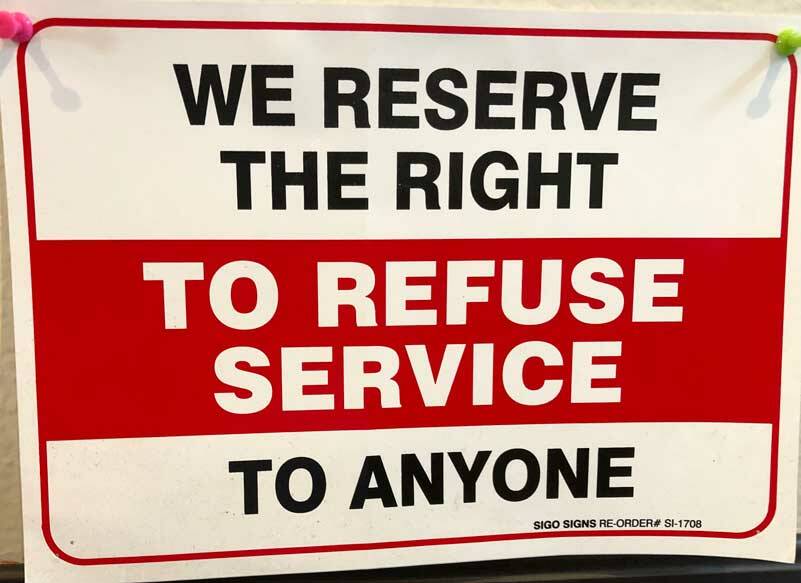By Morf Morford
Tacoma Daily Index
“It’s the economy, stupid” was a baseline guiding phrase a couple decades ago.
It’s true enough, but in the 2020s, voters, and customers, don’t always adhere to that relatively objective principle.
After all, when it comes to the economy, everything is local – and immediate.
If your family budget is under pressure, you generally know it.
But in what has become known as America’s “culture wars,” the “enemy” could be, and presumably is, anywhere and everywhere.
That song, that game, that presumably innocent comment, any word or term or even piece of clothing is a marker in this war of ideas than seems to know no boundaries – and, from all accounts, no end.
I have a friend is a marriage counselor. She told me that when a relationship hits a certain toxic stage, a primed and ready couple can fight about anything.
That’s where we are as a society.
It took us many years, and it took many contributing factors, but the bottom line is that we, in just about any and every public arena from public school classroom to neighborhood grocery store are ready to fight for – or against – almost any issue, topic or imagined grievance.
Education was supposed to be a cure for the factionalism that tore Europe apart for so many years and led to two world wars – among many other man-made catastrophes that shook the world for centuries.
Universities were founded on the premise that a solid basis of knowledge would lead to wisdom, if not prudence in trade and politics – among other things.
For generations, university students had to master Latin, Western history, rhetoric, English literature, higher mathematics, and at least the basics of theology and philosophy.
This was considered to be the core of a classical liberal arts education.
The point, ideally, was to immerse a student in a breadth and variety of subjects to encourage broad-mindedness, liberality, imagination, intellectual flexibility, and critical judgment.
Going back to ancient Greece, if not further, the “liberal arts” were believed to be essential for the equipping a durable society’s leaders, thinkers, and creators.
In 1940, just 4.6 percent of the U.S. population had a bachelor’s degree or higher, according to the U.S. Census Bureau. Today, the number is 37.5 percent.
Are we that much wiser, more prudent, broad-minded, intellectually flexible and have more solid critical judgement than just a few generations ago?
I can’t imagine anyone making that argument.
A little learning is a dangerous thing; Drink deep, or taste not the Pierian spring: There shallow draughts intoxicate the brain, And drinking largely sobers us again. – Alexander Pope
Conservatives complain about the state of higher (or any) education and usually point the finger at the deterioration of the social sciences and humanities into critical theory, identity politics, and “grievance studies.”
College students may take some of those classes, but few will major in those areas – or even take more classes than they need to .
The reality is far closer to the opposite; fewer and fewer students go to college for a “liberal education” – they go for a career.
The most popular majors are business, health, engineering, medicine, computer science, communications and journalism, and (decreasingly) education.
In other words, they are job training programs rather than courses of study in the liberal arts.
Part of the problem is students who approach their education as consumers, treat professors as employees who owe them good marks, and who complain about anything less.
In short, we have come to expect the university to produce leaders and thinkers; instead, we get technocrats and pundits.
The students, as they have been primed to believe, have developed an unearned confidence in their own thinking.
I’m smart because I said so
As a recent prominent political figure has been described, they have confidence and no substance.
You may have noticed the inevitable effects across social media; incoherent, contradictory and usually blatantly rude and crude comments form the basis of most online “arguments”.
Few “commenters” know the difference between fact and opinion, let alone the fundamentals of a persuasive and convincing argument.
And as you might expect from such a landscape, we have “instant” experts on everything from linguistics to the Constitution to business practices, health care and relationships.
Those YouTube videos have become the Lingua Franca of trolls and panicked grandmothers.
“Do you own research” has become code for “watch the same YouTube rants that I watch”.
As we know, most online (and all too many public)conversations devolve into chaos, but how could they not, when people with no expertise argue with trained professionals after reading one article or seeing one video on the internet.
A little over a third of Americans have just enough higher education to believe their opinions should carry authority with little of the earned and acquired wisdom, critical thinking, or humility that a real education should provide.
And everyone with internet access is suddenly endowed with the unassailable wisdom of YouTube, and who needs doctors or experts of any kind when they can be found online 24 hours a day?
So yes, there is a “culture war” but it’s not about Starbucks cups or race theories, or even individual “rights”, it’s the eternal “war” between ignorance and wisdom, confusion and clarity and crudeness and respect.
In other words, it is a “war”, a war between culture and everything that, throughout human history, has been the enemy of culture; suspicion, animosity and tribalism.
When it comes to any topic, a helpful contribution is one that challenges even as it consoles and convinces. And above it all, it should make sense.
As Alexander Pope continues in that same poem:
True ease in writing comes from art, not chance, As those move easiest who have learned to dance. ‘Tis not enough no harshness gives offence; The sound must seem an Echo to the sense: Soft is the strain when Zephyr gently blows
Or, moving up a few centuries, consider these lines….
“Let us not waste our time in idle discourse! Let us do something, while we have the chance….at this place, at this moment of time, all mankind is us, whether we like it or not. Let us make the most of it before it is too late! Let us represent worthily for once the foul brood to which a cruel fate consigned us! What do you say?” — Samuel Becket, Waiting for Godot
We are all in this moment, this society, this continuing conversation, whether we like it or not, together.
We can be at “war” with each other or with the actual elements and forces that threaten us all.






